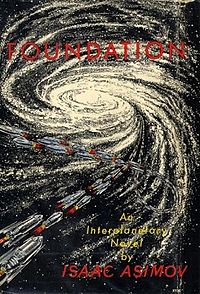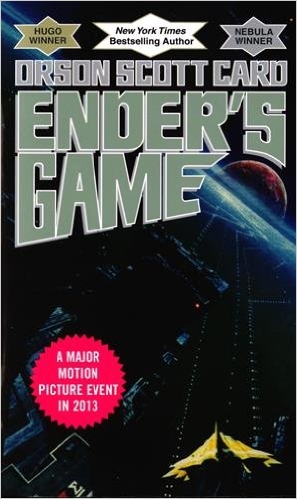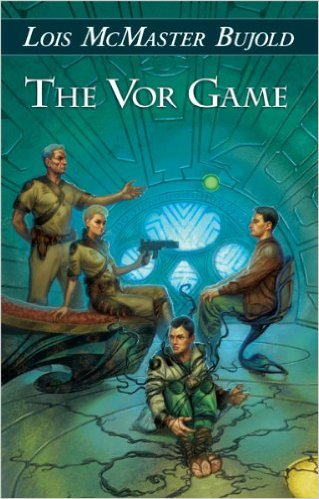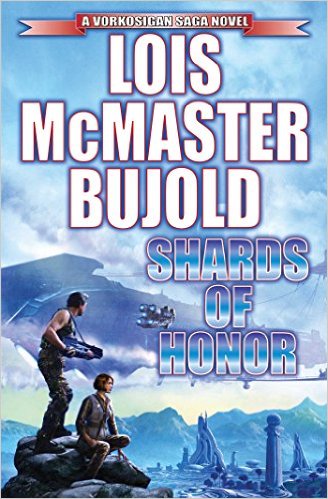Ann Leckie’s Ancillary Mercy and Lois McMaster Bujold’s Gentleman Jole and the Red Queen
Call me a fan. As a teen I devoured Isaac Asimov’s Foundation series, and bathed in the blue light of Battlestar Galactica and Star Wars. In the 70s and 80s, Ender’s Game by Orsen Scott Card, Lois McMaster Bujold’s Vorkosigan saga, and other award-winning works legitimized the space opera subgenre of science fiction.
Good space opera sets carefully-crafted characters, often heroes, on bold interplanetary adventures in plots bursting with action and the threat of high consequences for failure. Love interests that don't always work out are a frequent, secondary aspect. While heroic and optimistic in the 30s and 40s, recent space opera has darker plots and serious themes that react against older tropes and show the influences of cyberpunk. Military space opera emphasizes war, military values and heroic action in interstellar space where choices are not black vs white.
I would call Ann Leckie’s Imperial Radch trilogy and Lois McMaster Bujold’s Vorkosigan saga military space operas.
Leckie’s 2013 Ancillary Justice (first in the Radch series) won most of science fiction’s most prestigious awards: the Hugo, the Nebula, the Arthur C Clarke Award, the British Science Fiction award, and many others. This had never happened before. In Leckie’s universe, the term “ancillary” refers to a dead human body used by a sentient starship or space station as a part of its artificial intelligence (AI) network. The story follows Breq, an ancillary cut off from its ship's vast AI when the starship is destroyed by the ruler of Radch space. This brutal ruler is herself a kind of AI thousands of years old with multiple bodies and what turns out to be a fragmented consciousness. Breq spends the next three novels seeking revenge while saving systems and stations from this brutal ruler.
Among the novel’s most interesting features are linguistic tools and a complex use of time. In Radch Space, no distinction is made between males and females, and, writing within the confines of the English language, Leckie chooses to use only feminine pronouns “she” or “her” for all characters. Characters have only grandmothers, mothers and daughters. Leckie deliberately obscures gender clues like breasts and genitalia which forces readers not to pre-judge characters based on gender. Meanwhile, AI ancillaries like Breq are “it,” not “she” or even “he.” In this way, Leckie emphasizes the humans’ disregard for the AI's feelings and consciousness, which comes back to bite them in ways that force readers to ponder prejudice against various categories of peoples by conquerors and the powerful throughout our own human history.
In Ancillary Justice, Leckie also deftly intertwines two plot lines, one in the present as Breq closes in on the ruler of the Radch, and the other in the past, explaining how Breq got separated from its ship. Parallels between past and present are thoughtfully drawn in terms of plot and theme. Justice took Leckie years to write, but the next two, Ancillary Sword and Ancillary Mercy, appeared only one and two years later, and, well, are a testament to why publishers should give talented writers all the time they really need to deepen the complexity of sequels.
Published this February was Lois McMaster Bujold’s latest addition to the Vorkosigan series, Gentleman Jole and the Red Queen. Miles Vorkosigan is one of the most charismatic ADD characters ever to appear in fiction, IMO. At 4’9”, Miles has a 12’ tall “great man’s son syndrome” (Bujold’s words), for a father who’s widely regarded as a war criminal of interplanetary scope but is actually a hero dutifully following his Emperor’s secret, tragic orders. Miles’ parents, protagonists of the first two series novels, were victims of a poison gas attack while Miles was still in the womb, leaving him with terrible physical limitations in a man’s man society where genetic mutants were often eliminated, especially those born to the highest Vor military caste of rulers. Although no one ever scored higher on Barrayar’s military academy’s written admission tests, pride and fragile bones lead Miles to fail spectacularly in physical testing, and his career as an imperial secret service interstellar mercenary admiral is launched. Miles struggles to rescue his cousin, the Emperor, from a kidnapping because the last thing Miles wants to be, with a whole galaxy to explore and a mercenary fleet at his beck and call, is heir apparent.
By the time we arrive at Gentleman Jole and the Red Queen, 40 years and about 16 entries into Bujold's saga, Miles is middle aged, slowed by a big family and accumulating health problems. Although Bujold has written Vorkosigan novels that are stylistically akin to mysteries, comedies of manners, and political thrillers, one feels that this book is a kind of gift to Bujold’s fans clamoring for closure. What happens to Miles’ mother, Cordelia, after his father, Aral, dies? How is Miles, as a count in the suffocating oligarchy, helping Barrayar transition to a modern, open society? Don’t read this book first; it is too liberally spiced with innumerable references to earlier adventures. Read The Warrior’s Apprentice, or Shards of Honor about Cordelia and Aral, first.
Besides being exciting adventures with unexpected plot twists, these military space opera series question what makes a person a citizen with rights, and, less philosophically, what makes a person desirable or yucky to have sex with, or children with. Both authors conclude that neither a two-parent family nor a womb are necessary to reproduce and rear beloved babies, and they examine the ramifications of men and women deciding to conceive or clone, regardless of certain sectors of society’s views of the process.
Decades ago, Bujold foresaw that LGBT rights would quickly transform our society. She examined what happens when an extremely progressive and permissive interstellar Betan society clashes with the repressive, patriarchal, militaristic Barrayaran backwater. In a future where all technology is possible, Aral Vorkosigan can have posthumous babies with both his male lover and his wife, Cordelia. Miles must come to terms with a rogue clone with a body that might have been his had he not been poisoned in utero. “Herms” (hermaphrodites) are a minority group with full legal rights, and hermaphroditism is a choice for parents can make for their offspring.
Similarly, in Radch space, we explore what is essentially the reanimation and enslavement of conquered war dead, and the validity of feelings of starships with artificial intelligence thousands of years old and hundreds of ancillary arms broad. Through the opinions of a potentially hostile alien race, we also explore what makes a species “significant" and learn that independent thinking and feeling may be the major determinants.
Dramatizing what may be the logical extension of scientific advances that will alter societal mores and belief systems is the classic role of science fiction. The inconsistencies of galactic belief systems mirror our own, and should force us as readers to rethink our own stereotypes. These two series accomplish just that, and military space opera in general has limitless potential to imagine so much more and propel us that much further.
Call me a fan, a contemplative, sentient fan.








